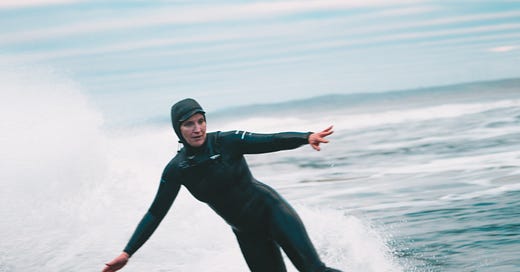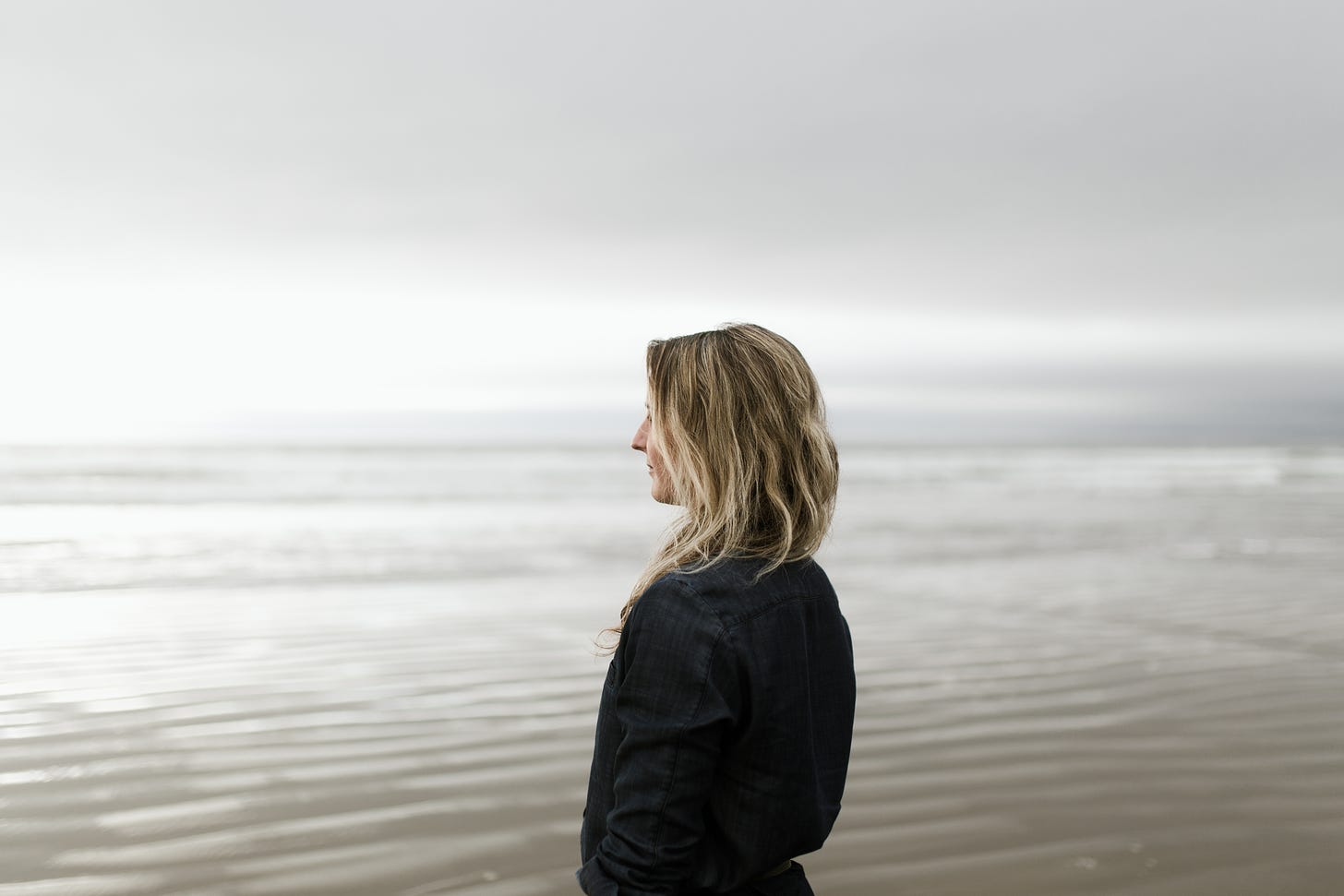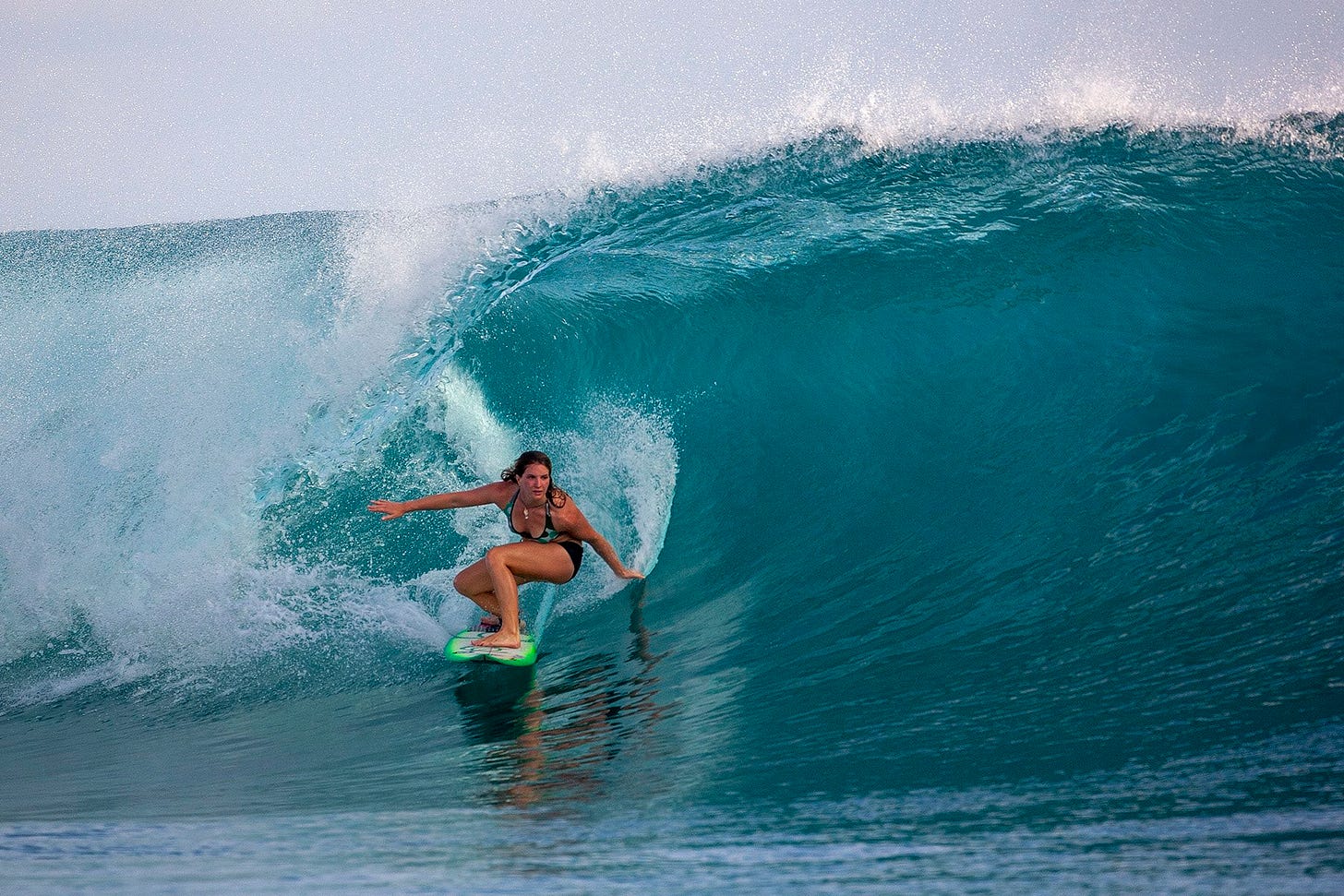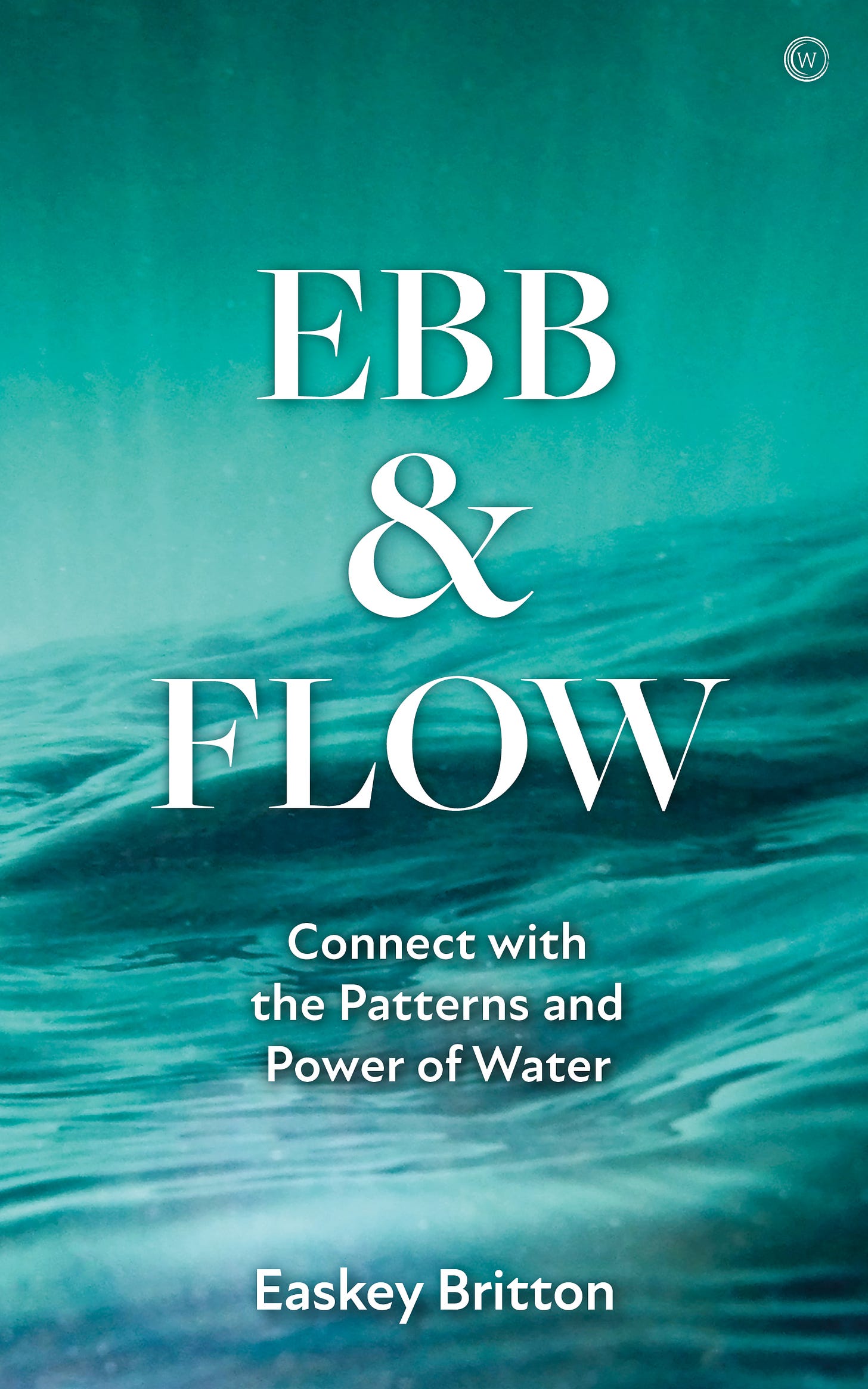“We can’t be well if the water isn’t well…”
An interview with surfer and marine social scientist Dr Easkey Britton from County Donegal in Ireland
“We can’t be well if the water isn’t well. If our environment isn’t healthy, we can’t be healthy, as that’s what supports us and gives us life.”
I first heard about Easkey when I was editing Cooler Magazine and pictures circulated of her surfing Aileen’s, a monster wave at the Cliffs of Moher in Ireland, the first woman ever to do so. When I later interviewed her, I quickly realised there’s a lot more to Easkey than just big wave charging. She has a deep connection to the ocean and powerful insight into what makes spending time in the water so special, themes which she’s explored throughout her career as a marine social scientist.
In this interview, we chat about surfing as a new parent, tuning into your local watershed, indigenous knowledge and the nascent environmental movement in Ireland. Hope you enjoy.
Hey Easkey, how’s the parenting going? You have twins, right?
Yes, a boy and a girl. The last two months have been grand, but it was super tough in the beginning. I’ve been lucky to be back here in Rossnowlagh, Donegal with my family, so I’ve got tonnes of support which is key. And I’m getting in the sea and surfing lots.
That’s good to hear. Has your relationship to water changed since having kids?
It’s changed totally. My body is not the same, it never will be, and mentally there is a big shift. I just don’t have that same mad gung-ho fearless drive, wanting to chase or hunt these crazy waves or pull into heavy barrels. Maybe it will come back some day but instead at the moment there is just this lovely sense of seeking connection, feeling that flow, really being in my body, it’s super interesting.
And I don’t drive around and look at loads of spots, I just jump in whatever it’s like. I feel lucky to have such a strong tie to the sea and surfing, it’s my non-negotiable, and my partner, who is also a surfer, really gets that. We support each other to get the water time as we know it will be a total reset. You can then bring that energy back into the household and the babies and everyone benefits.
I really enjoyed lots of the ideas in your new book, Ebb and Flow, but I especially liked the notion that our health is tied to the health of the water around us and that we should all be responsible for our own watershed…
We all belong to a watershed. Even if we’re not by the coast, we’re connected to water and the watershed approach is about taking that perspective and thinking about where you live in a different way, thinking about the source to sea journey of your local river and its catchment.
Until recently, a lot of my research was global, [eg women’s surfing in Iran], and coming back here has been a reminder that if I’m not aware of what’s going on where I am then what’s it all for.
What are the biggest environmental threats to your watershed?
Our water systems are the most polluted and degraded of all the environments that we have and it’s a continuing trend even in Ireland, where we have these wonderful targets and legislation from the European Union to protect waterways but it’s getting worse, over half of the rivers here are in a really poor condition or worse.
We try to exert natural control over things like water, there are now very few free-flowing rivers globally, and our imprint is everywhere, even the very depths of the ocean. But there is also a huge opportunity to recognise those interconnections, if whatever we do has an impact then we can take more positive action and that also has an impact.
I liked how you wove indigenous knowledge and wisdom into the book…
Indigenous communities have a small amount of land [globally] but it’s still the greatest concentration of biodiversity left on the earth, which speaks for itself. How we used to live is still maintained in a lot of indigenous cultures, but that knowledge gets sidelined. A lot of the stuff we’re writing about in terms of blue health research is already there and alive and has been embodied in ways of living that have been present for millennia.
The message that comes in across the board is seeing water not as a commodity but as life itself, as something sacred and medicinal. Failing to see that is the reason we’re in the mess we’re in, and looking at that relationship should be step zero in any kind of conversation activism work, otherwise we’re just trying to tackle the problem with the same kind of mindset that created it in the first place.
My friend Dan Burgess, who does the Spaceship Earth Podcast, talks about it a lot with his Stories for Life project, how we need to retell stories about connection and how we deepen that affinity. I definitely think a lot of the problems are caused by these lost connections. Our ancestors didn’t need to be told they were part of nature, they had a greater dependency on it in their daily lives but it's now so far removed from everyday life. For most of us, we’ve got water on tap, so it becomes this unconscious thing even when we drink water.
When I interviewed Rebecca Olive, she spoke about needing to turn the idea of blue health around and look at what we’re giving back to these spaces…
Yes, there is incredible science and research looking at these connections to blue spaces but on the other side, we’re rediscovering that the very water bodies we’re immersing ourselves in are deteriorating and may actually cause ill health. We can’t be well if the water isn’t well, if our environment isn’t healthy, we can’t be healthy as that’s what supports us and gives us life.
How environmentally engaged are people in Ireland?
It’s hard to say because in the mainstream media and general public discourse there is not a lot of spotlighting on environmental issues. Historically, there are lots of reasons for that. Our connection to place got really broken from the 1800s onwards, with people leaving the land from the series of famines we had brought on by the potato blight. It’s a dark spot in the history of Ireland and it still doesn’t get spoken about, but in a way, it has a huge part to play in the sometimes ambivalent relationship [Irish people] have with the natural environment.
But with the younger generation, there are lots of examples of coalitions forming especially around the sea, such as the Fair Seas coalition which brings a lot of the smaller charities together. Surfers are getting involved too. There’s a community in Lahinch who have set up a Surfriders chapter, which helps connect these global issues locally.
I’m hopeful, but the political system in Ireland is still very dominated by the various lobbies, especially the agricultural lobby, which is a big problem for rivers.
In the book, you mention Sea Sisters, a social enterprise that’s trying to make surfing more inclusive in Sri Lanka. How did you get involved with them?
I was mentoring Martina, one of the co-founders, in the beginning and sharing my experience of women’s surfing in Iran and the ‘Be Like Water’ programme we set up there. I wrote a paper about it at the time when there were very few academic papers on the topic. That was maybe the seed for Martina and they’ve taken it and created this amazing model that could be followed elsewhere.
It's a powerful example of the ocean being a really dangerous and unsafe space for a lot of women and girls around the world but how that can be transformed into an empowering space and one that also fosters ocean stewardship. Women have this amazing capacity to be water protectors, which I’ve also heard from interviewing First Nations communities in Canada.
Thanks Easkey. I’ll leave you to your coastal lunchtime walk with the twins…
The research on that is fascinating by the way. We’re now starting to see evidence that breaking waves and waterfalls release aerosols which are supposed to be really good for lung development and even treating conditions such as Cystic Fibrosis and other pulmonary issues. And the benefits last for months even after a short exposure of say 15 mins. We’re here next to the breaking waves and there’s got to be good stuff in the air they’re breathing in.
Find out more about Easkey’s work here & you can order her new book Ebb and Flow here.
Here’s a piece I wrote for Glorious on Finisterre’s Seasuit, a culturally appropriate outfit inspired by Easkey’s work with women surfers in Iran.
And an interview I did with Easkey back in 2014 for Mpora about her experience of teaching young women to surf in Iran.
Other news:
My really good pal Hannah Bailey has co-produced an awesome short documentary series for BBC Earth and Outside Magazine. It’s called Positive Action and it features three inspiring women, including past newsletter interviewee Lauren MacCallum, who love the outdoors and are pushing for positive environmental action in their communities. You read more about it and watch all three episodes here.
I wrote about skateboarding’s environmental reckoning for Huck Magazine.
If you’re based in Brighton come to the Surfers Against Sewage Paddle Out on May 20th to call for much-needed action on water quality. Paddle outs have such a mythic status in surfing and are so visually powerful media-wise so I’m excited to get involved.
And finally, I really enjoyed this Q & A with the mighty Hugo Tagholm on
. Have a read here.Please fwd this newsletter to anyone who you think might be interested & if you have any story tips on any of these themes pls get in touch.








Thanks for sharing Sam